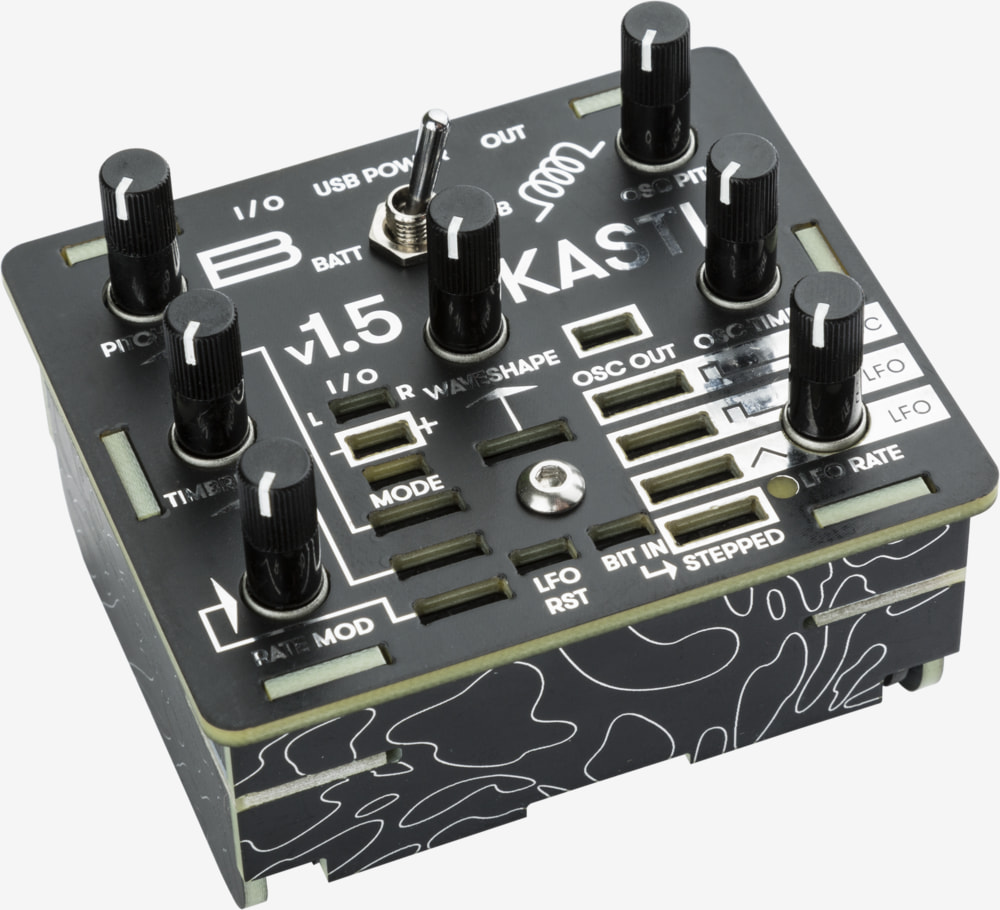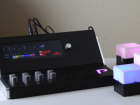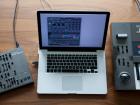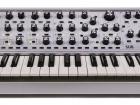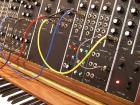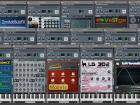More Synthesizers For Do-It-Yourself Enthusiasts (Part Two)

Post date:
In the first part of this article, we checked out a couple of do-it-yourself synthesizers such as the PAiA FatMan, Atari Punk Console Kit, Noise Toaster, CRAFTrhythm, and Electrosmith Daisy. These kits ranged in complexity from ones that could be assembled without the need for even soldering to ones that require a working knowledge of a programming language to operate. However, even the most complex DIY synths of today are still a breeze to assemble compared to what some of the synth pioneers of the early days had to deal with. So, if you are still searching for a kit to try and assemble yourself or want to modify the one you have already made, check out more of the options currently available.
Sixty Four Pixels ARPIE
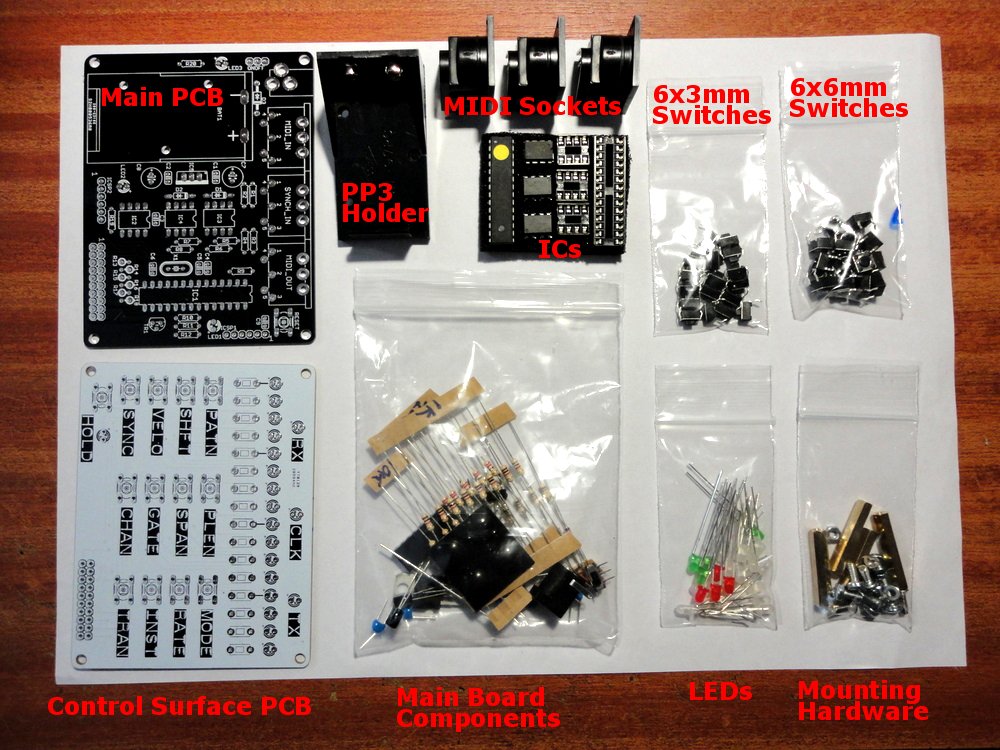
Price: £79.00
One of the great things about building your own synthesizer is that once you have it up and running you can always tweak and modify it even further. This is where something like ARPIE by Sixty Four Pixels can be handy. ARPIE is sold in a DIY kit and functions as a compact MIDI arpeggiator. This means that it doesn't make any sound by itself, but can be connected to a synth, sampler, or VST, which then uses the MIDI note information that it outputs. Both the hardware and firmware for ARPIE are open source, so if you know what you are doing you can easily hack it to your liking. It has too many features to list here, but some highlights include the ability to arpeggiate Up/Down/Up-Down/Randomised, Manual, or to play all the notes in polyphonic gated chord mode. It can also mutate and extend the arpeggio with inserted notes, force arpeggiated notes to a musical scale, control note length and MIDI velocity, and much more. Some soldering is required for this kit and you can purchase a case for it or design your own.
Korg Nu:Tekt NTS-1
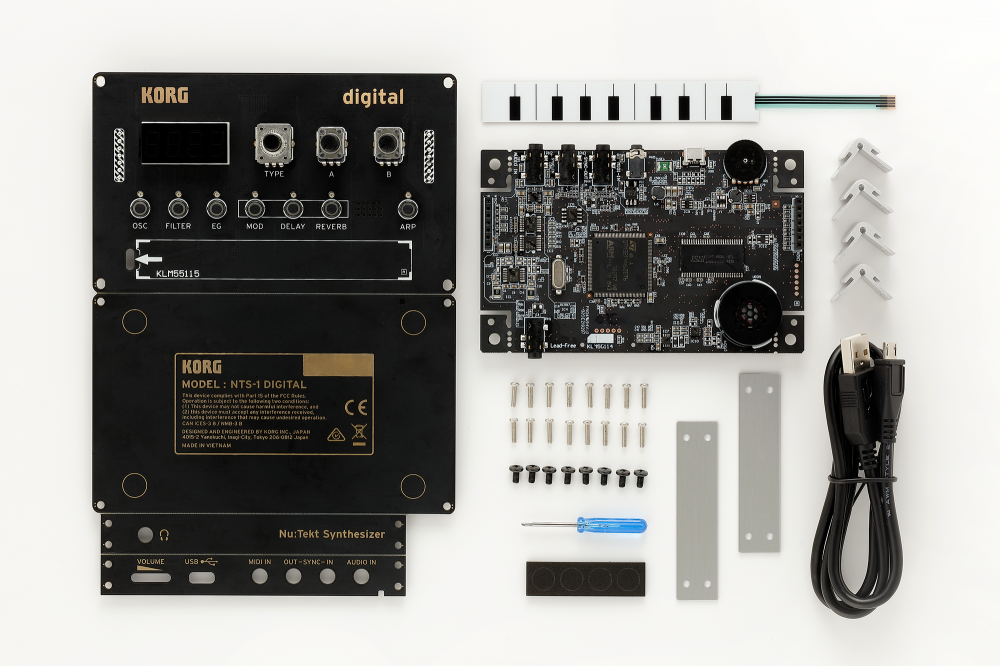
Price: $140.00
Korg has also embraced the DIY synth market with products such as the Nu:Tekt NTS-1 digital kit. It is the first kit in their DIY-focused Nu:Tekt brand and consists of a powerful synth and multi-effects engine. All of this has been packed into a compact form factor that can be assembled without the need for any soldering. The digital oscillator found in the NTS-1 was inspired by the MULTI engine of their prologue and Minilogue XD range and it also has a multimode filter, three LFOs, three stereo effects processors as well as a full arpeggiator. Sawtooth, Triangle, Square, and VPM waveforms can be coaxed out of the main oscillator while reverbs, modulation effects, and delays are also possible. Best of all, it has AUDIO IN, SYNC IN, SYNC OUT, and MIDI IN connectors which allows it to be connected to plenty of other hardware and software. In addition, it's USB micro-B powered, which makes it very portable.
Bastl Instruments Kastle 1.5
Price: €66.94
The Bastle Kastle 1.5 can be bought in a full DIY kit that includes all the parts, the PCB, and the acrylic enclosure as well as 10 patch cables. This synth is small enough to fit in your pocket once assembled and it is a great DIY entry point for those looking to experience the fun of modular synthesis. Kastle is an open-source DIY project and runs on two Attiny 85 chips. These can be reprogrammed with an Arduino and one chip is dedicated to sound generation while the other takes care of modulation. The latest version of Kastle is 1.5, which combines a complex oscillator and LFO with stepped waveform generator. The oscillator section offers PITCH, Timbre, and WAVESHAPE, with 6 different synthesis modes while the LFO has a triangle and square output as well as a reset input. The Kastle 1.5 is small enough to run on three AA batteries or via USB power.
ArduTouch Music Synthesizer Kit
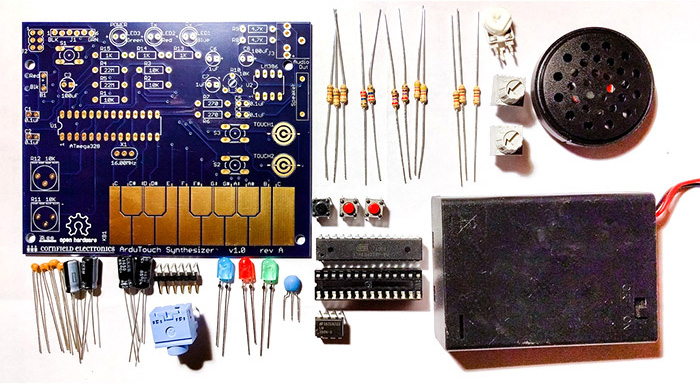
Price: $29.99
The ArduTouch is an Arduino-compatible music synth kit that is fully open source. While it is similar to the Arduino it features a PCB touch keyboard for playing notes along with extra buttons and pots for sound controls. While it can be plugged into an external amplifier for more power and loudness it also has an amp and speaker of its own, so you can get started right away after soldering everything together. Since it comes pre-programmed with a synthesizer you don't have to know any coding to get it working, but it is also easy to re-program if you want. All in all the ArduTouch is an impressive little device with surprisingly decent sounds considering the low-cost hardware.
Conclusion
These are just some of the options available, but there are plenty of others too such as the Fort Processor by ISN'TSES, Brunswick, and Portland by Future Sound Systems as well as the small, versatile miniMO. Be sure to let us know in the comments what your experience with putting together your own DIY synth has been like!
